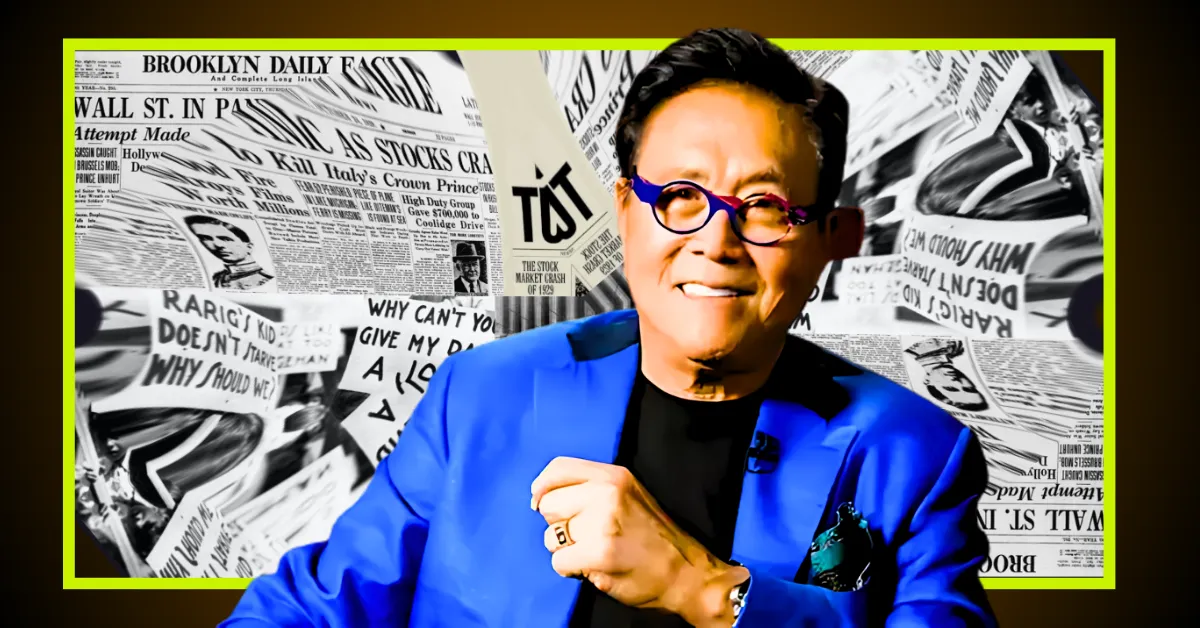
Wall Street faced a sharp pullback on Monday, May 19, as Moody’s downgraded the U.S. government’s credit rating by one notch, citing concerns over the nation’s mounting $36 trillion debt.
The downgrade triggered a broad market sell-off and raised alarms about the U.S. economy’s long-term stability, but it also reignited a long-standing warning from financial author Robert Kiyosaki, who sees this as the beginning of something far deeper and more dangerous.
Moody’s, the last of the major rating agencies to act, cut the U.S. credit rating from Aaa to Aa1, citing ballooning deficits and rising interest costs that threaten America’s ability to manage its debt. Investors reacted swiftly: Nasdaq-100 futures plunged 1.6%, S&P 500 dropped 1.2%, and Dow futures fell 0.8%.
At the same time, bond yields surged, with the 30-year Treasury piercing the 5% mark for the first time in years, a clear sign of investor nervousness about lending to the U.S.
This came on the heels of one of Wall Street’s strongest weeks in months, where easing U.S.-China tensions had sent tech stocks soaring. But those gains now appear fragile as financial markets brace for the ripple effects of America’s downgraded fiscal image.
Author and financial educator Robert Kiyosaki responded strongly to the news. He compared the U.S. to a “deadbeat dad” borrowing recklessly with no plan to pay it back. He warned that this downgrade will likely lead to higher interest rates, triggering a recession, rising unemployment, potential bank failures, and possibly a crash reminiscent of the Great Depression of 1929.
Kiyosaki said he foresaw this scenario in his 2013 book Rich Dad’s Prophecy and has long urged people to escape the trap of job security. Instead, he advises embracing entrepreneurship, investing in cash-flowing real estate during downturns, and saving real assets like gold, silver, and Bitcoin. “A depression can be the best time to become rich,” he wrote, encouraging people to think like entrepreneurs, not employees clinging to a steady paycheck and a shrinking 401k.
On the other side, Peter Schiff dismissed Moody’s downgrade as largely irrelevant, saying markets didn’t react strongly because it’s already clear the U.S. can’t repay its debts. He warned that default or inflation is inevitable and argued that credit ratings are political, not economic.
With Federal Reserve officials set to speak this week, investors will be closely watching for signals on how policymakers interpret the downgrade and its potential influence on interest rate decisions. For Kiyosaki, however, the message is already clear for those who prepare wisely, with real assets and an entrepreneurial mindset, may turn crisis into opportunity.
It signals increased risk in U.S. debt repayment, raising borrowing costs and shaking investor confidence.
Yes, Moody’s downgraded the U.S. credit rating from Aaa to Aa1 in May 2025 due to rising debt concerns.
The last downgrade was in May 2025, marking Moody’s first cut in over a decade amid mounting debt worries.
Experts like Kiyosaki believe it could, as higher interest rates may trigger job losses, bank issues, and slower growth.
Nasdaq-listed Bit Digital intends to raise its authorized share capital from 340 million to 1…
Ethereum, the second-largest cryptocurrency with a market cap of $453 billion, has been testing a…
The IBCI index, which tracks Bitcoin’s market cycles, has entered the “distribution zone” for the…
Ripple CEO Brad Garlinghouse explained that prime brokers are streamlining large-scale clearing between traditional finance…
On July 25, spot crypto ETFs recorded strong investor demand, with approximately 1,100 BTC and…
Story Highlights The Ethereum price today is . ETH price with a potential surge could…